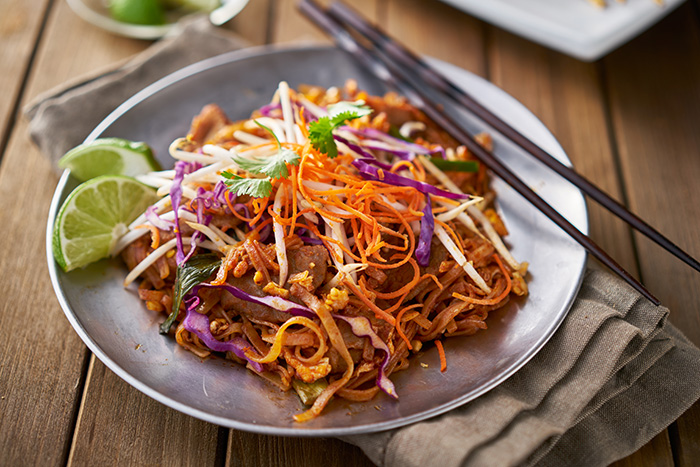Lose weight faster with mindful eating
Forge a healthier relationship with food, and lose body fat, with mindful eating
Food plays a central role in our lives, not just as our source of energy and nutrients, but in how it makes us feel. Eating a wide variety of foods you enjoy, in a relaxed environment and in good company, is vital to your well-being.
Why? because through meals we socialise, celebrate and connect with others. So when we talk about a “balanced diet” it’s not just about nutrients. It’s also about perspective!
Yes, we all have a responsibility to our future selves to take care of ourselves now, And that means having a healthy diet. But we must also remember that we live social and emotional lives. And food is a big part of that.
One problem is the highly stylised food photography on social media of “clean foods” or “clean eating” meals. This can distort the relationship between the foods we should eat and our long-term health and happiness.
Dietitians and nutritionists agree that the quality of a diet is measured over the long term by a good balance of nutrients and deriving pleasure from eating, not from looking at each meal in isolation with a “good’ or “bad” judgement.
Find your perfect fat-loss plan!
Take the New Body quiz!
What is mindful eating?
Our 90% Nutrition post explains that eating well 90% of the time is a fantastic target for greater health and happiness. And a great way to hit that target regularly is to stop thinking about foods as either “good” or “bad”. It’s better to instead think of foods as either “nutrient-dense” or “pleasurable”, both of which are positive terms.
Ideally, we’ll eat meals that are both nourishing and pleasurable. A bowl of soup may contain several servings of vegetables as well as being just the thing to warm and comfort us on a cold day.
But finding that balance across a meal, or across the week, is the aim. Remember, it’s the bigger picture of your food choices that matters. If, after checking in with yourself, you decide that you want something just for pleasure, then go for it and allow yourself to enjoy it!
Here’s where mindfulness helps. Take your time to enjoy the smell, texture and flavour of the food. There’s no point in eating a pleasure food and then feeling guilty about it! Here’s some easy ways you can be mindful at mealtimes.
The problem with feeling guilty about food, aside from feeling miserable, is it sets you up for “black and white” thinking in other areas of your life too. The “all or nothing” approach always leads to nothing. And this type of thinking triggers the idea that if something isn’t “perfect” then it’s worthless. You might think to yourself “I’ve blown it” and then lose motivation to exercise, or fill in your journal or do any other beneficial activities you’d planned.
Mindful eating: food and your mood
Interestingly, letting go of guilt and enjoying your food has other beneficial consequences. Research shows that when we’re in a better mood we tend to make healthier food choices, while negative moods do the opposite. So, feeling guilty about eating something could create a self-defeating vicious cycle of binge eating and negative feelings.
The other issue with food guilt is the well-known experience that the more you restrict something, the more you tell yourself you can’t have it, the more you crave it. You become obsessed with the thing you cannot have. And that increases the likelihood that at some point you will gorge on it. Research suggests non-restrictive eaters – people who allow themselves to eat what they want – have fewer obsessive food thoughts and are less likely to binge. Now there’s some food for thought!
Find your perfect fat-loss plan!
Take the New Body quiz!
3 things I wish I’d known when trying to get lean and lose weight
Burn fat and lose your belly with the best cardio for weight loss

